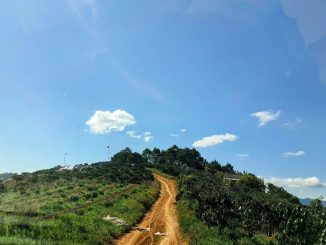Rains are expected to continue for the next few days in Vietnam, affecting the harvest in the world’s top producer of robusta coffee.
Rains are expected to continue for the next few days in Vietnam, affecting the harvest in the world’s top producer of robusta coffee, while Indonesia remained quiet, traders said on Thursday.
A storm heading to the central and southern Vietnam is likely to cause rains in several parts of the Central Highlands, Vietnam’s main coffee belt, during the weekend, preventing farmers from harvesting and drying coffee beans.
“It’s been rainy for three to four days but turns sunny this morning; farmers are not harvesting … beans are not ripe yet,” said Le Duc Huy, vice general director of Simexco, a top exporter in Daklak, Vietnam’s largest coffee growing province.
Severe rains would hit some eastern coastal provinces from Friday in the south and central Vietnam, and could extend to the Central Highlands in the west, with “complicated and prolonged” developments, the weather forecast centre said.
Most parts of the Central Highlands are likely to see sunny days after the weekend rains, the National Meteorological and Hydrological Center said on its website.
“If it turns out to be a mix of rainy and sunny days, it is actually a boost to the coffee beans to ripe faster and better,” said independent analyst Nguyen Quang Binh.
Traders said farmers in Daklak were offering coffee beans at 39,200-40,000 dong ($1.73-$1.76) per kg, the lowest level since Sept. 6, 2016, as prices track a fall in London robusta coffee market.
London January robusta coffee futures contract fell as much as 5.9 percent this week to $1,830 a tonne on Wednesday, a low intraday level unseen since Sept. 1 last year, Thomson Reuters Eikon data showed.
Export contracts were unmatched as sellers offered the 5 percent black and broken grade 2 robusta at a discount of $40-$50 to the January contract while importers asked for a discount of $60-$70, traders said.
In Indonesia, the grade 4 defect 80 robusta beans was being traded at a $20-$30 premium to the January contract, tightening from a $40 premium a week earlier, a trader said.
Most traders are only fulfilling their committed contracts and are not active, the trader said, as harvest will not start until April next year.
Reuters 2 Nov 2017
Hits: 208


